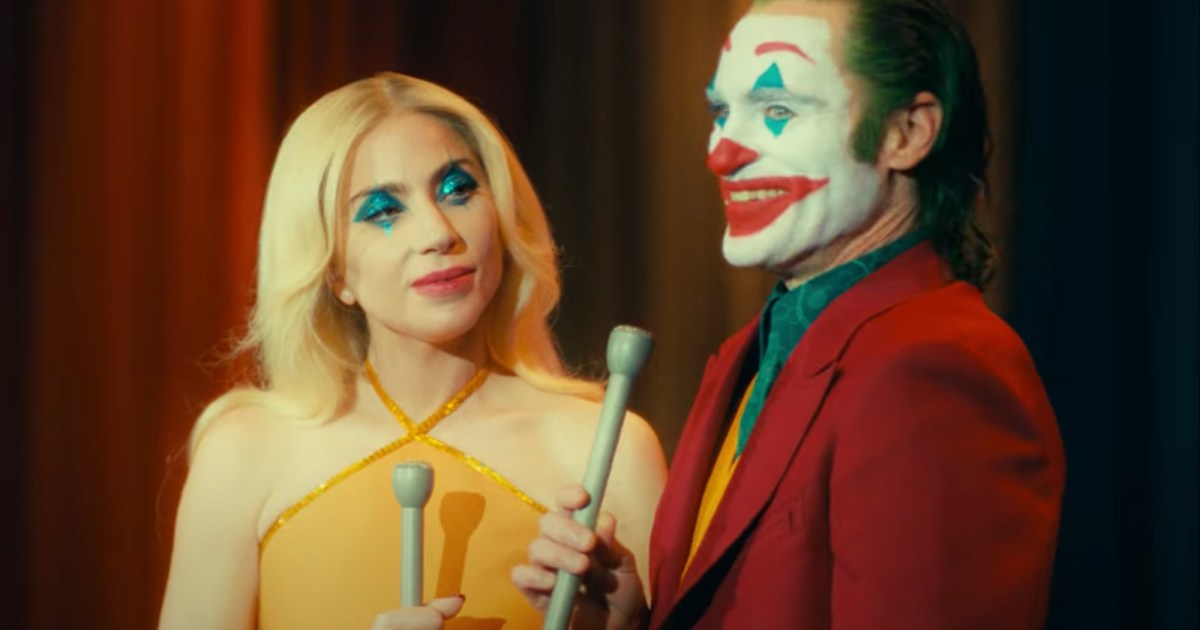Gotham City’s greatest villain has returned to the big screen with the release of director Todd Phillips’ Joker: Folie à Deux. This sequel shows Arthur Fleck (Joaquin Phoenix) meeting his partner-in-crime, Harleen “Lee” Quinzel (Lady Gaga), in Arkham State Hospital as he stands trial for his string of murders two years prior.
This mix of musical theater and procedural crime drama has made for an unusual but exciting follow-up to one of DC’s most successful pictures. Though it may have received less-favorable reviews than its predecessor, it continues the Joker story while deconstructing Phoenix’s character in a clever and surprising way. Now that the film is in theaters, it’s time to break down the story and what the ending means for the supposed Clown Prince of Crime.
The story

Following the murders he committed in the first film, the imprisoned Arthur is at risk of receiving the death penalty in court. Hoping to put Arthur into a proper psychiatric hospital, his lawyer, Maryanne (Catherine Keener), tries to convince the court that the Joker is a persona brought on by dissociative identity disorder resulting from his childhood trauma at the hands of his abusive mother.
However, Lee encourages Arthur to embrace Joker, arguing that this is who he really is, and they start a romantic relationship. Arthur then fires his lawyer and starts appearing as Joker in court, riling up his supporters at the courthouse and inside Arkham. But things change after he reunites with Gary (Leigh Gill), still traumatized by seeing Arthur murder their coworker, and overhears a group of Arkham guards kill a fellow patient for expressing support for him.
Seeing how his actions have led to death and trauma to the people he actually likes, Arthur renounces his Joker persona on live television, saying it was just an act, and admits his guilt for the murders he perpetrated. Following this, Lee loses interest in Arthur, realizing she only loves the Joker and that she was living a fantasy just like him.
How does Joker: Folie à Deux end?

All in all, this sequel subverts everything set up before by showing how the Joker is just a symbol and that everyone perceives Arthur for what they want to see. Some see him as the victim of mental illness, others see him as a murderous monster who deserves to die, and his followers see him as a rebel fighting a corrupt system. But in the end, Arthur shows that he is just a man pretending to be someone else to get others to notice him.
Though Arthur briefly escapes captivity thanks to a bomb placed by two radical supporters, the authorities catch up to him and put him back in Arkham. It is there that another patient stabs Arthur to death, having once idolized him as the Joker but had been disillusioned by his true self. As Arthur bleeds to death, his killer laughs and cuts the corners of his mouth, giving him scars, much like Heath Ledger’s Joker.
While this means the end for Arthur, the Joker is still very much alive, as this unknown patient seems to have taken on the persona for himself and will continue the cycle of violence that Arthur began as the true Clown Prince of Crime.
Will there be another Joker sequel?

In an interview with The Hollywood Reporter, director Todd Phillips stated he has no desire to make another Joker sequel or spinoff, believing he doesn’t see himself making any other movies with DC. He also claimed he didn’t write anything in Joker: Folie à Deux meant to set up another story.
Though this may not stop DC and Warner Bros. from green-lighting a follow-up, Phillips was a major creative part of his two Joker films. It’s hard to imagine them achieving the same level of success without him, so it looks like this branch of the DC Universe has reached its end.
Joker: Folie à Deux is now in theaters.
Read the full article here














